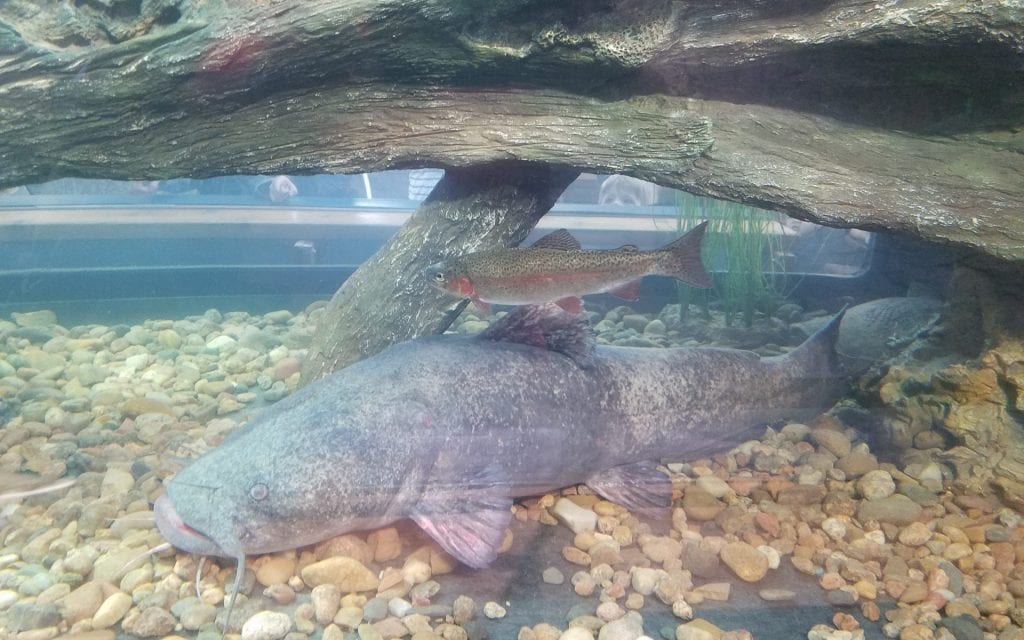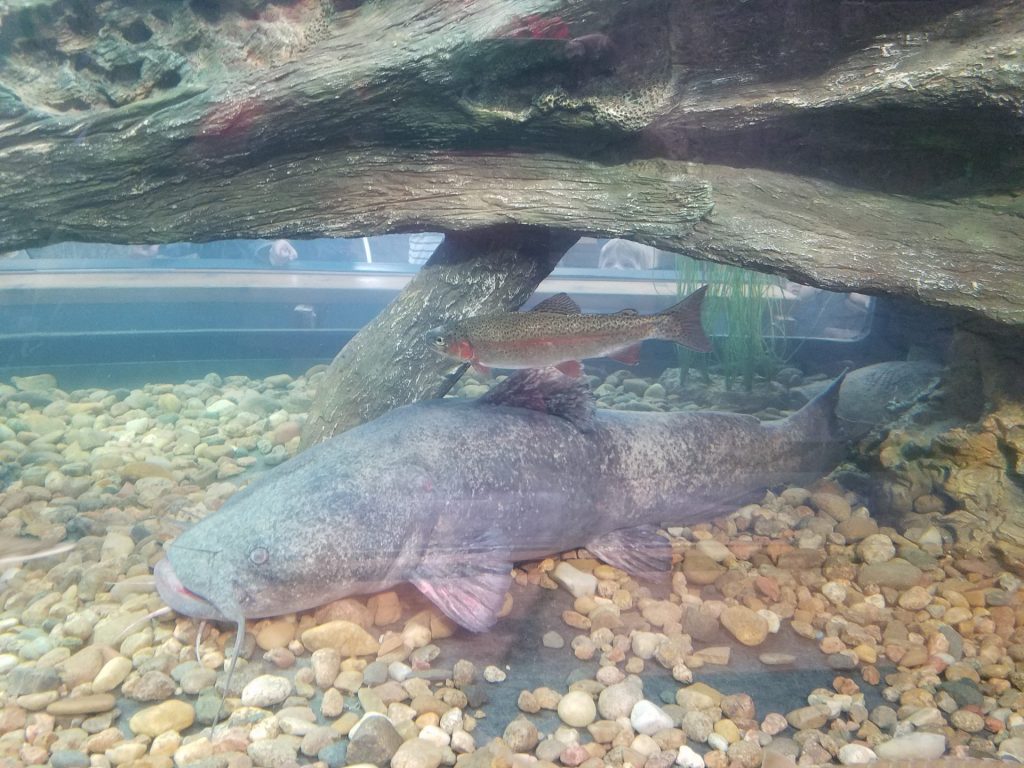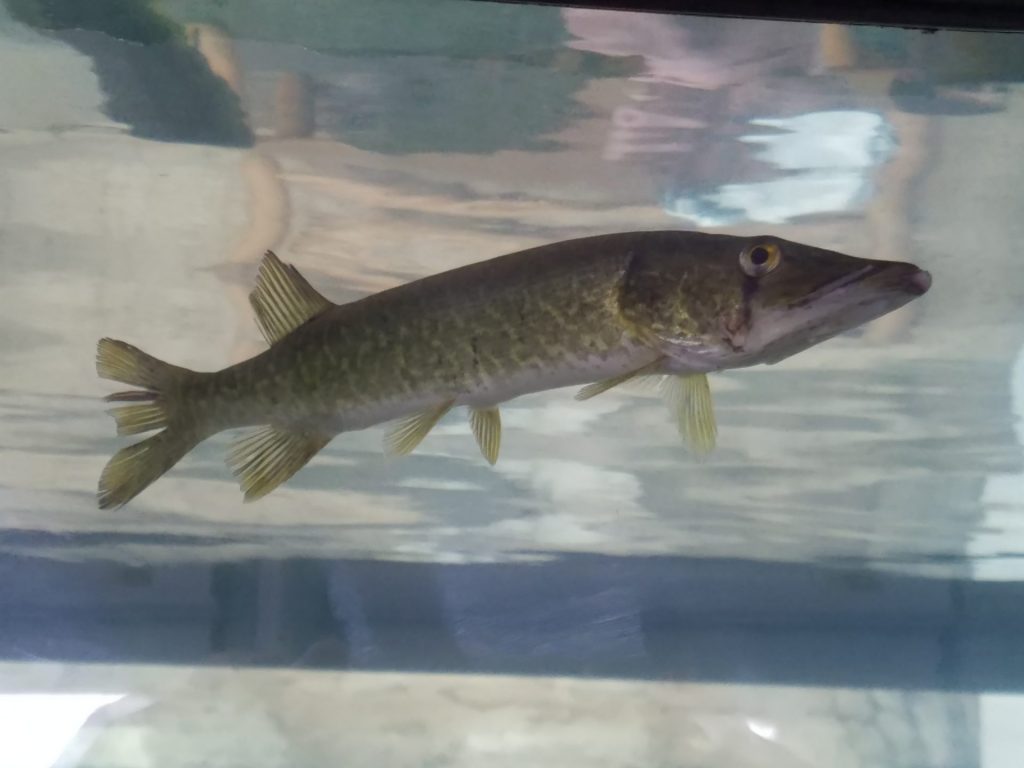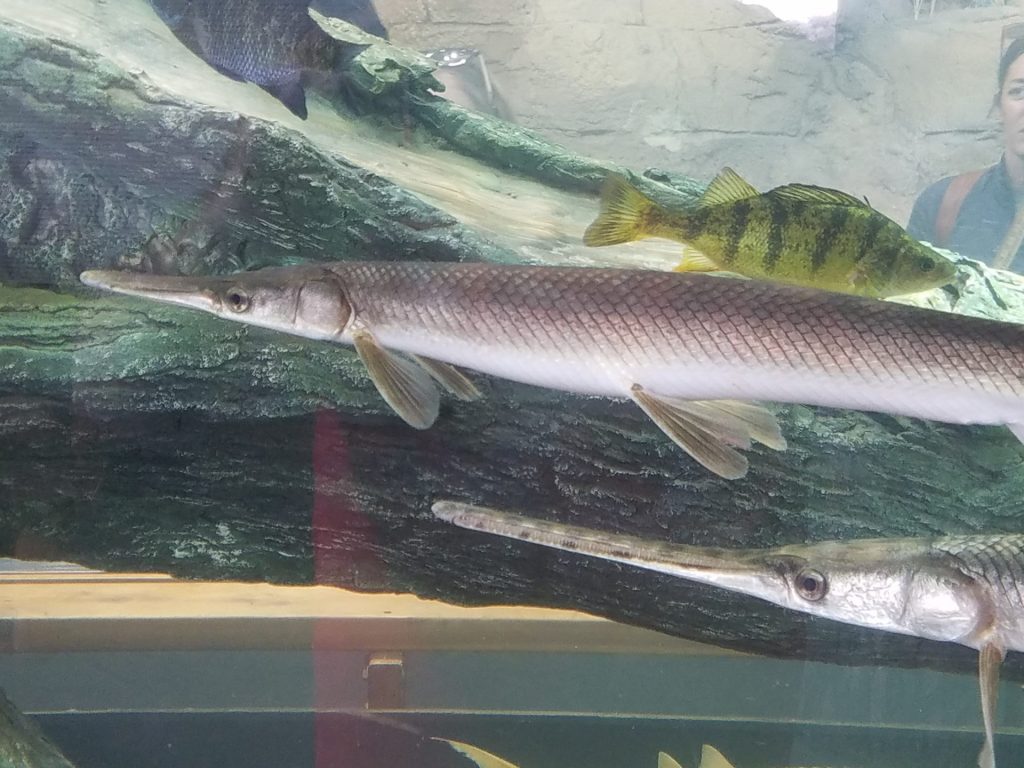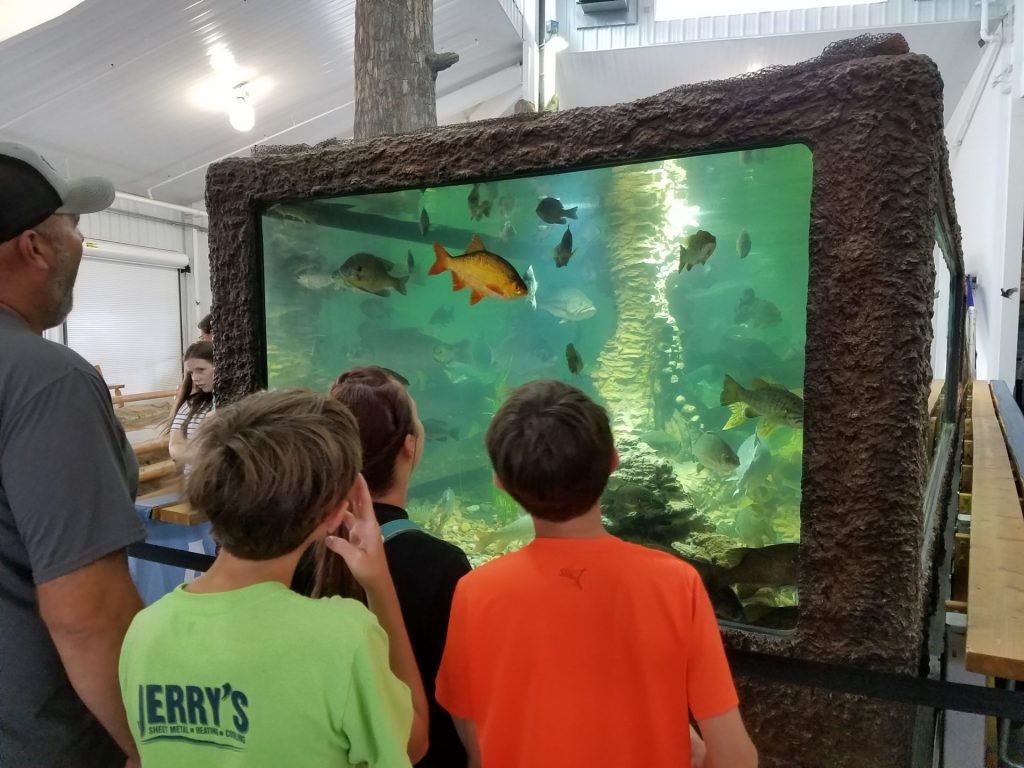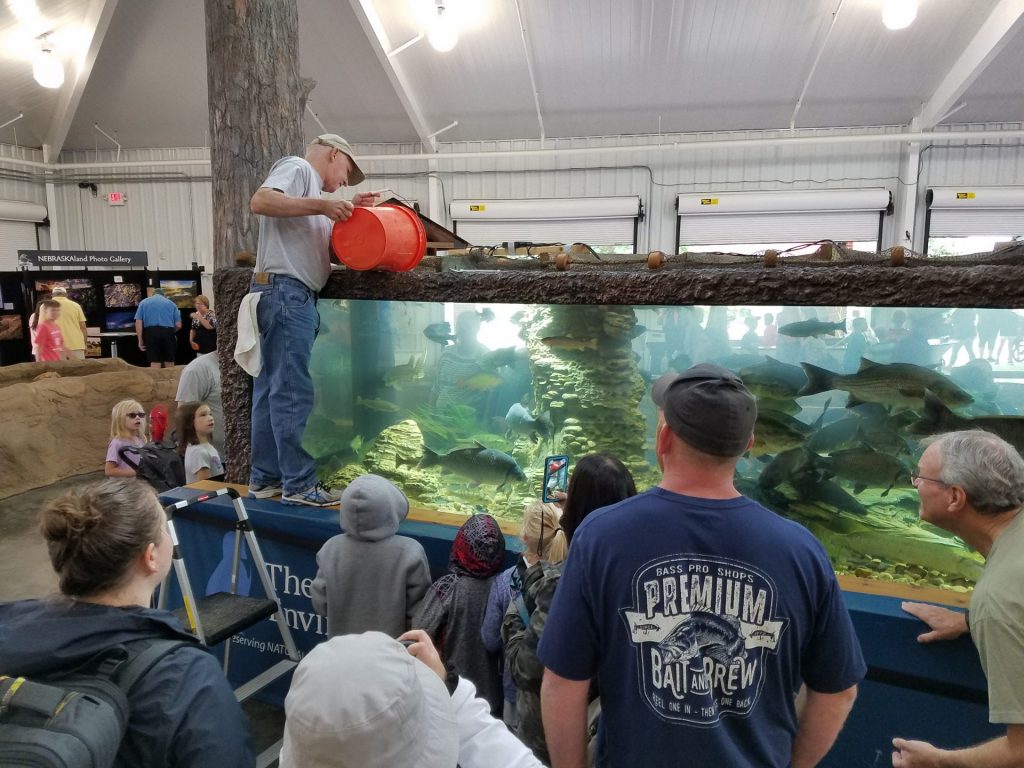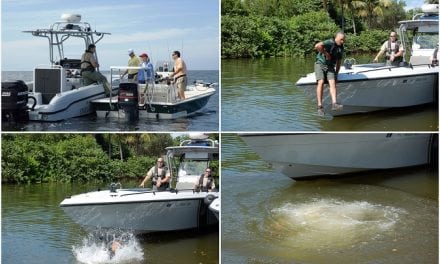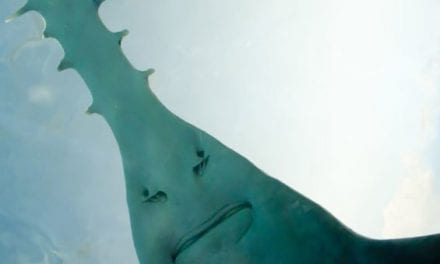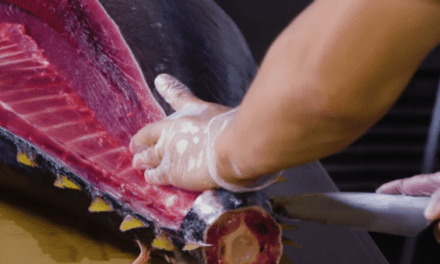Honestly, I have been thinking of what might be a good blog post for today. I always have a bunch of ideas, but none of them seemed like good ideas today. So, I started scrolling back through some pictures to see if something might come to mind. . . . I noticed a bunch of pictures I took of our 6,000 gallon fish tank at the state fair. The display of fish at the Nebraska State Fair goes back a long, long time; back to when pictures were taken in black and white.
Our Fisheries staff at the Nebraska Game & Parks Commission puts a lot of effort into the collection and display of fish at the state fair every year. It may be a lot of work, but there is probably no one who likes looking at the fish more than we do. At least I doubt if anyone likes looking at the fish more than I do! So, I was thinking maybe there were a few things about the fish that were displayed this year that may not have been noticed by the average fair-goer who briskly walked by the tank.
Of course big fish, no, make that BIG FISH, are the main draw:
The big flathead displayed this year weighed 30-some pounds when the fair started. By the end of the fair every year, there will be a few less fish in the tank. Many of them in the dark of night will find their way into the large mouth of the flathead catfish. I am betting that fish weighed more at the end of the fair.
I thought some of the most interesting fish displayed this year were some of the smallest. If you looked closely there were four of these specimens in the tank:
No, that is not a pike, not a muskie, those four small fish were grass pickerel. They came from the sandhills and I am betting with all the water in the ‘hills this year, it has been a good year to be a pickerel.
From time to time I hear questions about gar identification, no not at the fair, but at other times. If you can get them to pose like this, it is easy to tell them apart!
Of course then a longnose gar goes and hybridizes with a shortnose gar and it all gets complicated (HINT: Hybrids have a short nose with spots on it).
We had a stack of our “Common Fishes of Nebraska” tackle box, fish identification booklets that folks could pick up at the fair. I believe every fish in the fish tank could be found in that identification booklet except for one. I wonder if anyone but a pointy-headed fish biologist even noticed that one fish? You can see it in this shot:
The gold-colored fish with the reddish fins? That’s it, an European rudd. Rudd are an exotic species that used to be sold as live baitfish around the country. The sale of rudd as baitfish has been prohibited for several years now, but there are a few that still reside in some Nebraska waters. One got captured and displayed at the state fair this year.
A highlight of working the fair, besides the corndogs and cherry limeaides, is putting a net-full of minnows into the tank. We go through several gallons of minnows over the length of the fair.
You will have to take my word, dozens of minnows were going into the tank in that shot. Fellow fisheries biologist Brad Newcomb was putting them in. Those dozens of minnows were gone in a flash! I can tell you that smallmouth bass, white bass and wipers are always some of the most aggressive predators in the tank, but the rainbow trout were also getting right after the minnows. Although they do not immediately join in on the feeding frenzy, it is surprising how species like walleyes, sauger and channel catfish also get active and start feeding. Interestingly, if you watch close, you can see the different feeding strategies, almost different personalities, of the different species.
I spent a day working the state fair this year. Now you know what I do while I am there, besides talk to folks and watch people. The same fish tank with different fish will be at the Missouri River Outdoor Expo at Ponca State Park this weekend, stop by, take a look. Look close!
The post Fish Tanks appeared first on Nebraskaland Magazine.

